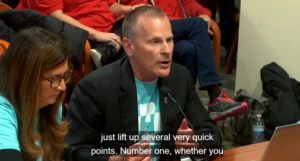The MHA Board of Trustees focused most of their Nov. 8 meeting on targeted actions in advancement of their 2023-2024 Strategic Action Plan, which outlines the association’s priorities for the year ahead and identifies those areas of work that need long-term attention from the MHA and the hospital community. Once again, the plan is organized into four key pillars: Workforce Support and Innovation, Viability, Improved Behavioral Health and Health Equity.
Opposition to mandated staffing ratios remains a top priority for the association within the Workforce pillar, as it has been shown to be a misguided and potentially harmful approach to addressing workforce shortages. Instead, the association supports specific measures to address educational barriers, innovation and growth within the talent pipeline. Within the Viability pillar, the board discussed ongoing work in partnership with the Michigan Department of Health and Human Services (MDHHS) to maximize Medicaid funding, a review of MDHHS’s process for rebidding Medicaid health plan contracts and a status report on Medicaid eligibility following the expiration of COVID-era waivers. The board also discussed strategic priorities to advance the association’s Behavioral Health and Health Equity pillars. This included continued work on bed access and capacity (especially for children), crisis prevention and education, Community Mental Health system reform and behavioral health data support, as well as continued work on the health equity front to reduce maternal morbidity disparities and partnerships with public health departments to address local disparities.
Board member Douglas Apple, MD, chief clinical officer, Ascension Michigan, and interim president & CEO, Ascension Genesys Hospital, provided a patient story that emulated the use of high reliability principles that resulted in reduction of patient harm. In this case, during a routine preoperative assessment, a nurse appropriately used the Suicide Risk Screening tool and discovered that a patient very recently attempted suicide. The use of the tool and subsequent intervention led to the patient getting critical care for a health risk that would otherwise not have been identified.
The board concluded with board task force reports, an MHA Keystone Center and MHA Service Corporation report, regional hospital council reports, an AHA report and an update from MHA CEO Brian Peters.
Members with questions about the MHA Board of Trustees meetings should contact Amy Barkholz at the MHA.

